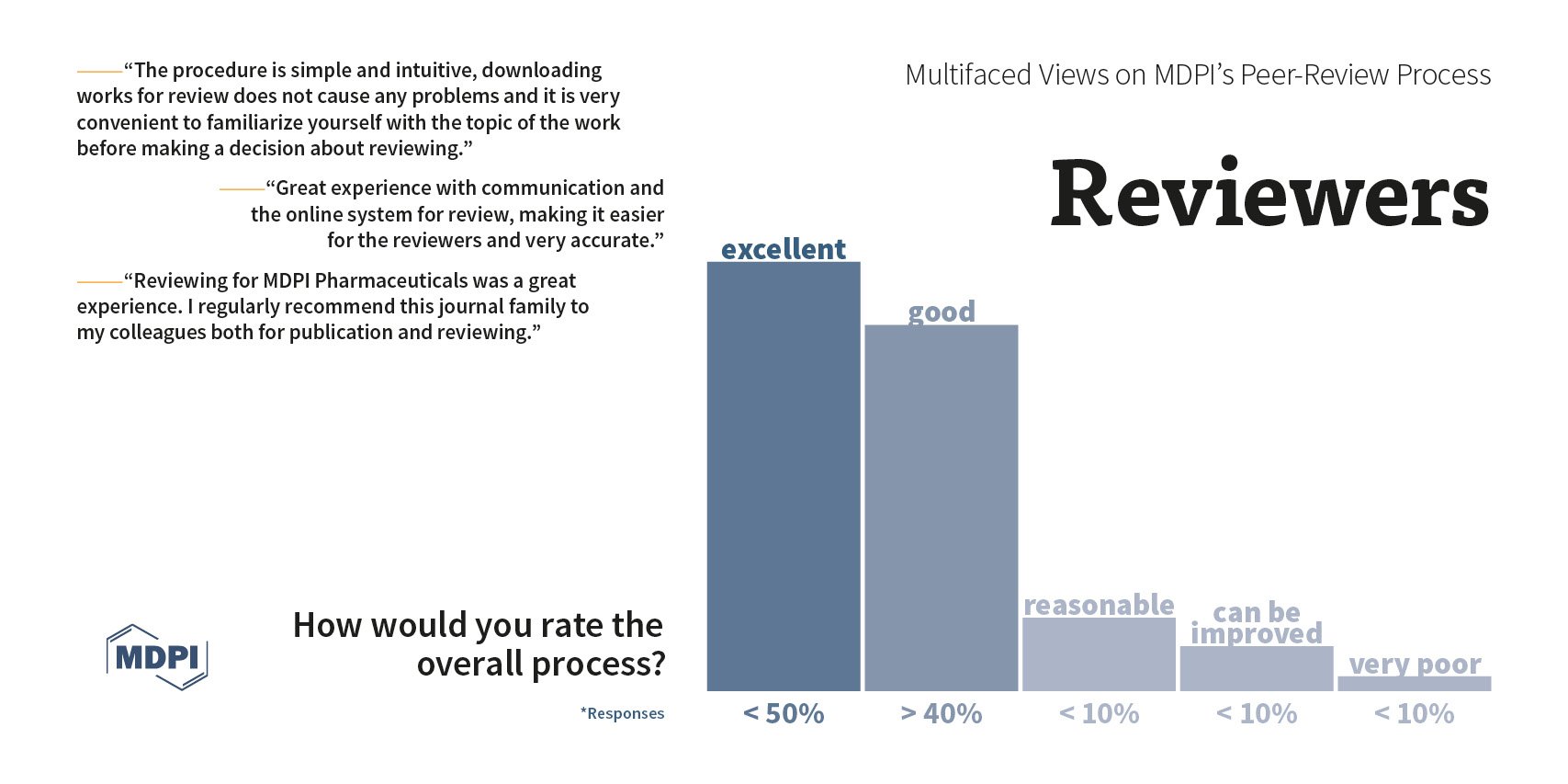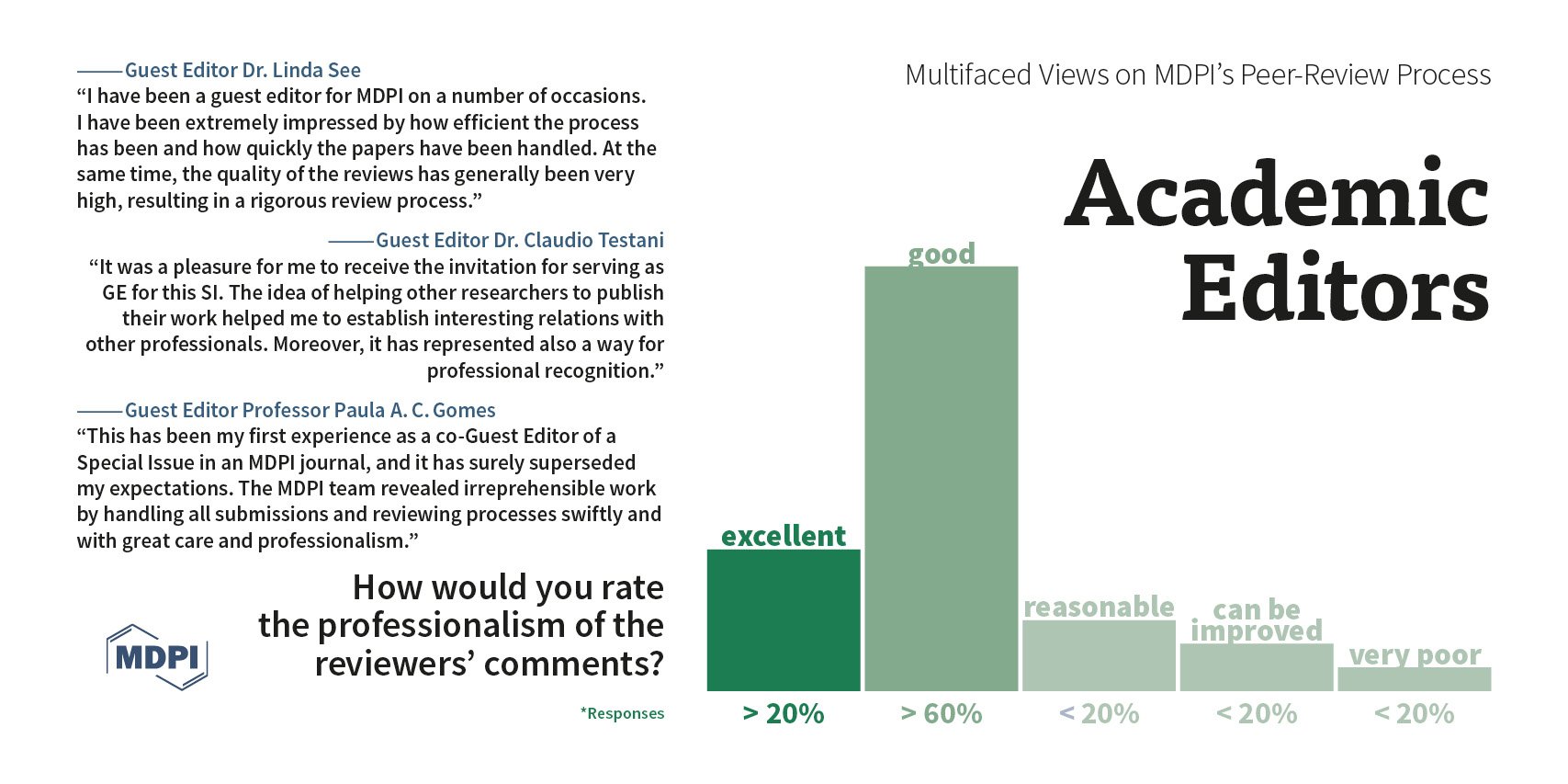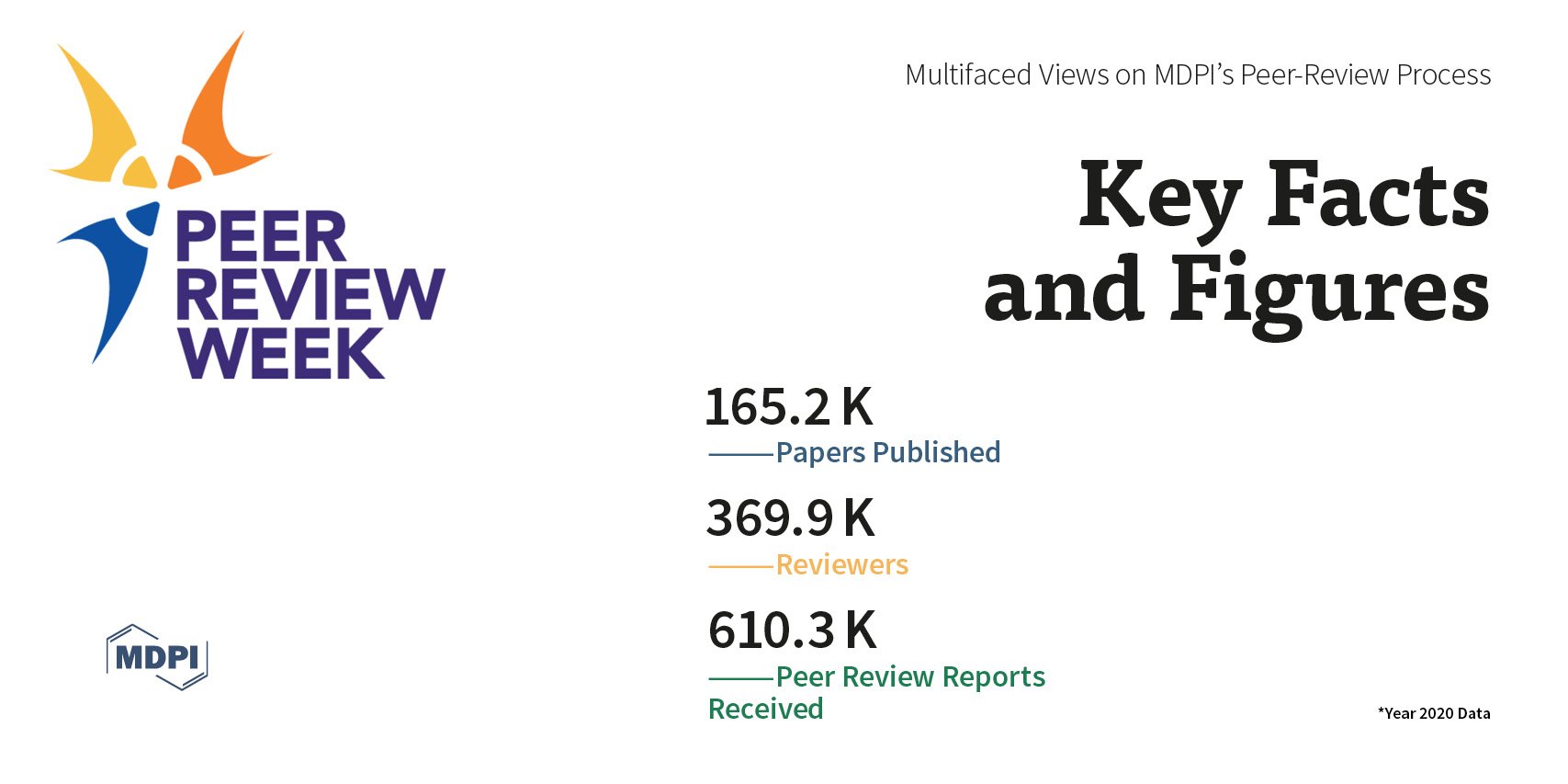Peer-Review Week 2021 – Insights into MDPI's Supportive and Efficient Peer-Review Process
This year's Peer-Review Week is held from 20 to 24 September 2021. The theme this year is "Identity in Peer Review", which was selected via an open global survey. Individuals and institutions with different identities participate in peer review, and while their roles vary, they have the same goal: to better share academic content.
In-line with this year's Peer Review Week theme, we shined a light on a range of different identities at MDPI who are working hard behind the scenes to ensure the most efficient and quality peer review for all manuscripts. See them below as they give their thoughts on a range of peer review topics.
At MDPI, we value reviewers' work and consider peer review to be the most important stage in the editorial process. Rigorous peer review is the corner-stone of high-quality academic publishing. We continuously monitor the feedback from all the stakeholders to ensure that the process runs smoothly and that all aspects are continuously improved according to the community’s feedback. In response to the theme of this year’s Peer-Review Week, we are pleased to share the multifaced views from all the stakeholders with different roles who have directly or indirectly participated in the peer-review process, and some key facts and figures about our peer-review process.
Multifaced Views on MDPI’s Peer-Review Process




Benefits of Being a Reviewer for MDPI
To show our appreciation for the efforts of those who contribute to the peer-review process, when reviewing for MDPI journals you will benefit from the following:
- A discount voucher code entitling you to a discount on the article processing charge (APC) of a future submission to any MDPI journal.
- A personalized reviewer certificate.
- Included in the journal’s annual acknowledgment of reviewers.
- Considered for the journal’s outstanding reviewer award.
- Can build your profile on Publons and have your reviewing activity automatically added for participating journals. Publons profiles can also be integrated with ORCID.
How to join MDPI as a Reviewer?
If you are interested in reviewing articles for one or more of our journals, please register your contact details, including your ORCID identifier, institutional affiliation, a short CV, and 5–6 keywords outlining your expertise at the following page.
The managing editors of the selected journals will send you a notification once approved.
About MDPI
A pioneer in academic open access publishing, MDPI has been focused on serving and strengthening the scientific community since 1996. In 2020, MDPI celebrates its 25th anniversary and our journals continued to have considerable impact in the open access publications market. Our purpose is to provide a valuable service to the academic community. Our mission is to foster scientific exchange in its various forms, across all scientific disciplines.
